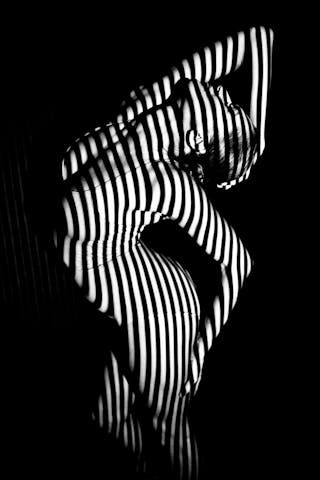When it comes to dating, people have their own preferences, and that's okay. Some people have specific traits or characteristics they look for in a partner, and that's completely normal. However, when it comes to dating someone who identifies as bisexual, some individuals may hesitate or even refuse to pursue a relationship, leading to the question: does not wanting to date a bisexual man make you a bad person?
So you've found someone you really like, but there's something about them that gives you pause. Maybe it's their unique sexual orientation. But is it really wrong to have reservations about dating someone who identifies as bisexual? It's a complex issue, and it's okay to have your own preferences and boundaries when it comes to relationships. If you're still unsure, maybe it's worth exploring the idea a little further. After all, love is love, right? And who knows, you might just find yourself open to new possibilities. If you're interested in exploring new connections, check out married women dating for a different perspective.
Understanding Bisexuality
Experience the ultimate virtual extravaganza and unleash your wild side with online orgies!
Before diving into the topic, it's important to first understand what bisexuality means. Bisexuality refers to a person who is attracted to individuals of both genders, whether that be men and women, or non-binary individuals. Bisexuality is a valid sexual orientation, and those who identify as bisexual should be respected and accepted just like anyone else.
If you're a single parent looking to connect with others in a similar situation, give the Single Parents Hookup at Angels Club a try by visiting their website.
The Stigma Surrounding Bisexuality
Unfortunately, there is still a stigma surrounding bisexuality, particularly for men. Bisexual men are often stereotyped as promiscuous, confused, or unable to commit to one partner. These harmful stereotypes can lead to discrimination and prejudice, making it difficult for bisexual individuals to feel accepted and valued in both the LGBTQ+ community and the dating world.
Fear of Insecurity and Rejection
For some individuals, the idea of dating a bisexual man may bring up feelings of insecurity and fear of rejection. They may worry that their partner will eventually leave them for someone of a different gender, or that they will never be fully satisfied in the relationship. These fears can lead to a reluctance to pursue a relationship with a bisexual man, even if they are attracted to him and enjoy his company.
Internalized Biases and Misconceptions
In some cases, the reluctance to date a bisexual man may stem from internalized biases and misconceptions about bisexuality. Some people may hold onto outdated beliefs or stereotypes about bisexual individuals, leading them to make assumptions about their character or behavior. It's important to challenge these biases and educate oneself about bisexuality in order to approach potential relationships with an open mind.
Respect and Acceptance
Ultimately, the decision to date a bisexual man is a personal one. It's important to respect and accept someone's sexual orientation, regardless of whether or not it aligns with your own preferences. Bisexual individuals deserve to be seen as whole and complete human beings, deserving of love and respect just like anyone else.
Communication and Understanding
If you find yourself hesitant to date a bisexual man, it's important to communicate openly and honestly with him about your concerns. By having an open dialogue, you can gain a better understanding of each other's perspectives and work through any potential issues or insecurities. It's also important to approach the conversation with empathy and a willingness to listen, rather than making assumptions or judgments.
Conclusion
In the end, not wanting to date a bisexual man doesn't automatically make you a bad person. However, it's important to examine the reasons behind your reluctance and consider whether they are based on harmful stereotypes or biases. Everyone has the right to their own dating preferences, but it's crucial to approach potential relationships with respect, empathy, and an open mind. Bisexual individuals deserve to be valued and accepted for who they are, and by challenging our own biases and misconceptions, we can create a more inclusive and understanding dating community for everyone.
- https://local-personals.fu-direct.net/posts/star-sign-sex-toy-recommendations-which-sex-toy-will-drive-you-wild-according-to-the-zodiac/
- https://hookupsites.fu-direct.net/posts/reverse-cowgirl-reverse-cowgirl-sex-position-tips/
- https://flirting-online.ua-sex.com/posts/i-tried-the-womanizer-shower-head-that-doubles-as-a-sex-toy/
- https://sexting.ua-sex.com/posts/lily-allen-sex-toy-lily-allen-womanizer-liberty-clit-sucker/
- https://flirting.ua-sex.com/posts/luxury-sex-toys-high-end-sex-toys/
- https://hookup-website.ua-sex.com/
- https://sexting.ua-sex.com/posts/12-queer-women-share-their-biggest-dating-red-flags/
- https://singles-chat.fu-direct.net/posts/pansexual-meaning-and-definition-what-is-pansexual/
- https://online-sex.fu-direct.net/posts/sex-toys-for-couples-27-best-sex-toys-for-couples/
- https://fuck-apps.ua-sex.com/posts/lesbian-sex-first-time-tips/
